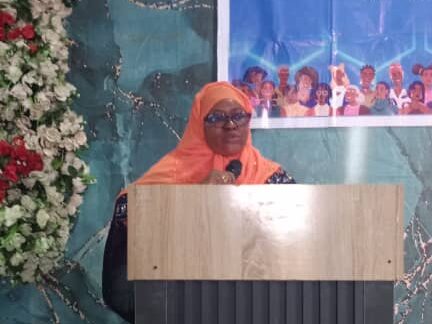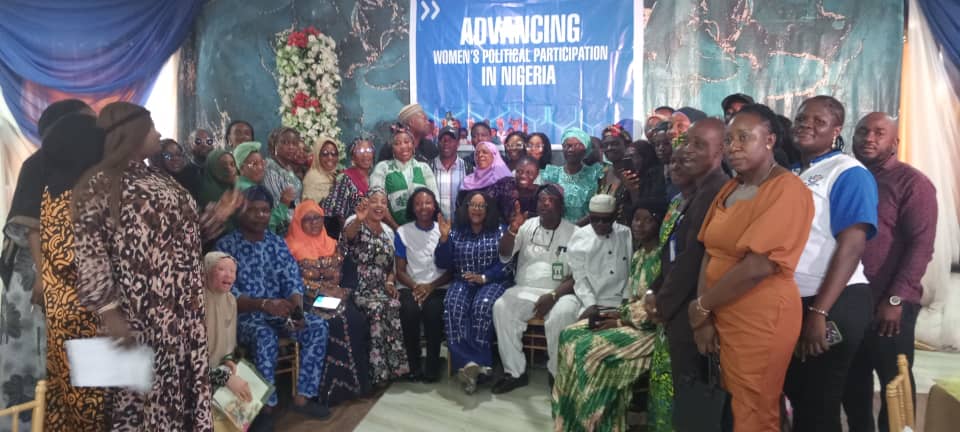
The advocacy for gender inclusivity in politics and governance has continued in Ilorin, the Kwara State capital with experts, professionals, religious and community leaders calling for deliberate female representation in all strata of leadership in the country.
At a stakeholder advocacy and town meeting, convened by the Kwara State UN Women Central Working Group in Ilorin, the stakeholders are of the view that creating opportunities for women to occupy elective and appointive positions of authority in line with 35 per cent affirmative action would neutralize the subsisting culture of discrimination against women.
The gathering in partnership with Royal Heritage Health Foundation (RHHF), focused on “Gender Inclusion and Constitutional Reform”.
It is coming at a time that the National Assembly has been inundated to undertake a constitutional review to accommodate and reserve special seats for women in the hallowed chambers of both arms of the National Assembly as well as state Houses of Assembly to enable them prove their mettle.
The state Attorney General and Commissioner for Justice, Senior Ibrahim Sulyman, in an address, urged political parties to adopt internal gender quotas and inclusive nomination processes so that women would also have a sense of belonging.
The Commissioner, who spoke, through a Director in the Ministry, Mrs Funke Balogun, implored the legislative arm to amend the nation’s Constitution to reserve seats for women in the National and State Assemblies.

He said democracy could be identified as truly representative when women were allowed as decision-makers and not the usual guests at the table.
The Attorney General maintained that Section 42 of the 1999 Constitution of Nigeria (as amended) provides a strong legal basis for affirmative action since it prohibits discrimination on the grounds of sex.
The Attorney General’s office also called for promotion of civic and political education among women and girls, particularly at the grassroots, just as it added that international gender equality conventions should be replicated at the state level.
Mrs Madinat Adekilekun, who delivered Mrs Balogun’s keynote address titled “The Legal Imperative of Reserved Seats for Women”, said gender-sensitive legal reforms should be strengthened at both federal and state levels.
The representative of Commissioner for Justice explained that women have historically been at the forefront of development, peace building, and community resilience, adding that “From market leaders to high-level professionals, from educators to judges, Nigerian women have consistently demonstrated capacity, vision, and integrity in leadership”.
She said, “In the political space, the inclusion of women ensures diversity of thought and policy priorities. Women tend to advocate issues such as education, healthcare, child protection, and economic justice—areas that are foundational to national development.

In an address of welcome, the Executive Director, Global Hope for Women and Children Foundation (GLOHWOC), Dr Christy Oluwole-Abayomi, lamented that customs, tradition and the likes made women to be underrepresented in governance and economic spaces over the years.
She said stakeholders would have to work in synergy, identify and bridge the existing gap for women to have a place on the decision making table.
According to her, it is a known fact that customs, tradition and others like that have made women to be underrepresented in governance and economic spaces coupled with marginalization of women in the National Assembly seats.
She also explained that there was the need for 37 seats for women at the Senate and 74 seats at the House of Representatives as this would enable women in public offices to take decisions on issues affecting them.
The RHHF Project Manager on UN Women, Abimbola Seun Oyinloye, said the event serves as a vital step under the leadership of the State Working Group, in collaboration with the State Ministries of Women Affairs and the Offices of the First Ladies, to galvanize support for women’s political inclusion.
She described it as a strategic platform to unite all key stakeholders for the signing of a Memorandum of Commitment.
The RHHF leader, a lawyer, stated that the consolidated memorandum, shaped through the inclusive deliberations, would be formally presented to the Constitutional Reform Committee during the upcoming Zonal Public Hearings.
She said this would ensure that the voices of women and marginalized groups are effectively represented in Nigeria’s constitutional reform process.
The town meeting featured writing and signing of memorandum for constitutional reform.
By Abubakar Umar

